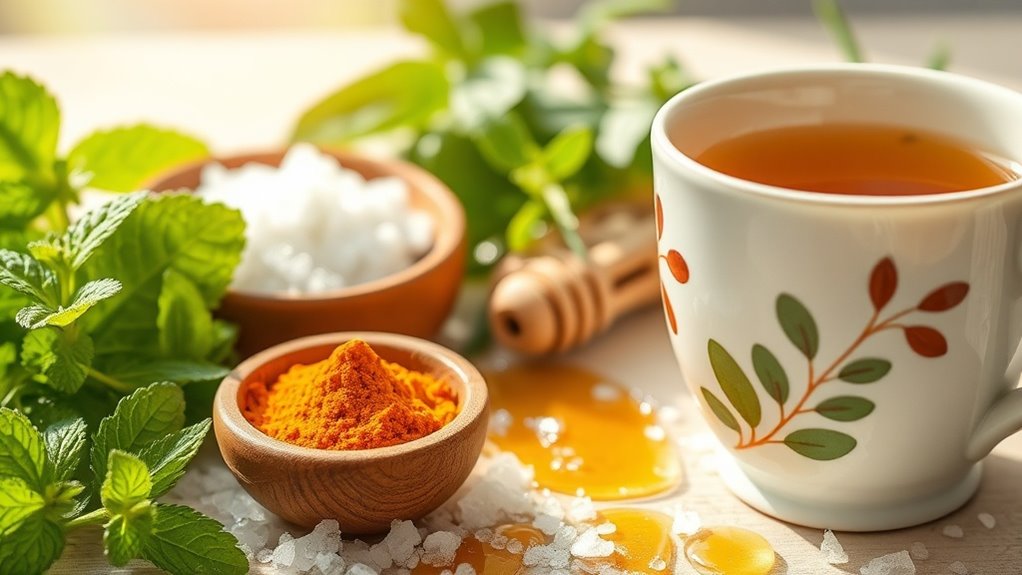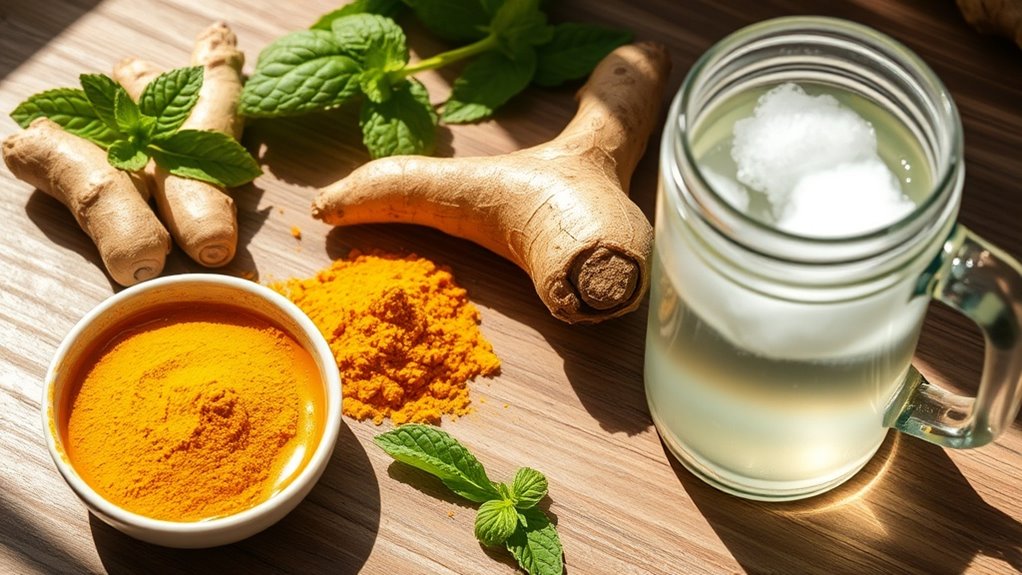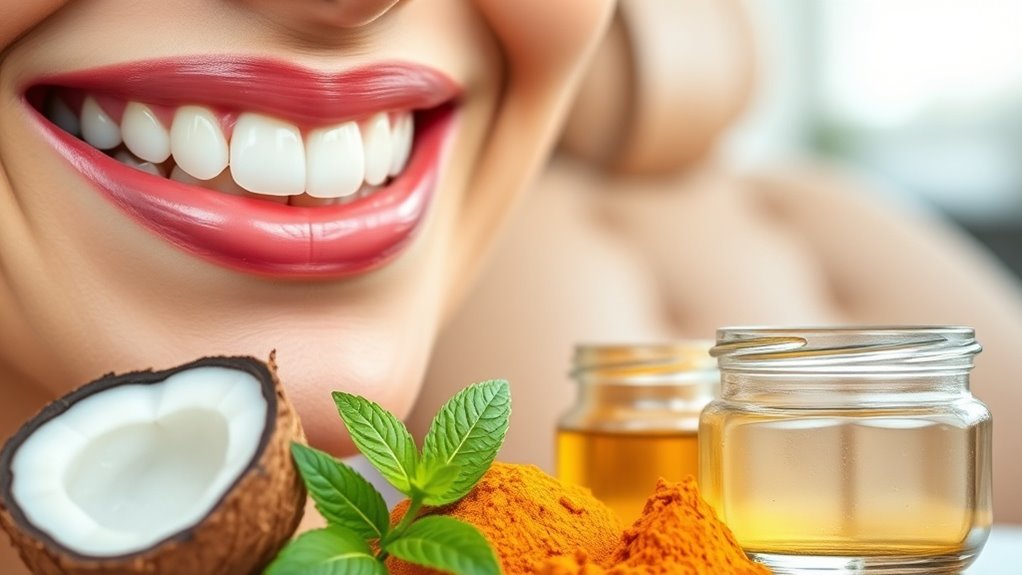Store any extra paste in a sealed container for future use, but it’s best used fresh.
Application Techniques for Effectiveness
Applying the baking soda paste effectively can greatly enhance its ability to reduce gum inflammation. Start by gently brushing your teeth to remove plaque, then apply the paste directly to the affected gums. Use your fingertip or a cotton swab for targeted application. Allow it to sit for 5-10 minutes before rinsing with warm water. Repeat this process 2-3 times weekly for best results.
| Technique | Description |
|---|---|
| Pre-brushing | Brush teeth to remove plaque |
| Targeted application | Use fingertip or cotton swab |
| Duration | Let paste sit for 5-10 minutes |
| Rinsing | Rinse with warm water after application |
| Frequency | 2-3 times weekly |
Aloe Vera Gel: Soothing and Healing
Aloe vera gel offers a natural solution for soothing and healing irritated gums.
Its anti-inflammatory and antimicrobial properties make it effective in reducing swelling and promoting oral health. To use, apply a small amount directly to the affected area and gently massage it in. This will enhance blood circulation, which aids in tissue repair. You can also swish with diluted aloe vera gel for broader relief. Regular application can help alleviate discomfort and prevent further gum irritation. Always choose pure, food-grade aloe vera gel to guarantee safety and effectiveness in your oral care routine. Additionally, incorporating foods rich in vitamin C into your diet supports gum health and enhances the healing process.
Turmeric Mouthwash: Anti-Inflammatory Properties
How can turmeric mouthwash aid in reducing gum inflammation?
Turmeric contains curcumin, a compound known for its potent anti-inflammatory properties. When used as a mouthwash, it can help soothe irritated gums and reduce swelling. The anti-inflammatory action of curcumin inhibits the production of inflammatory markers, promoting gum health. Additionally, turmeric possesses antioxidant properties, which further protect your oral tissues from oxidative stress. To create a turmeric mouthwash, dissolve half a teaspoon of turmeric powder in warm water and swish it in your mouth for several minutes. Regular use may lead to noticeable improvements in gum condition and overall oral health. Furthermore, this natural solution aligns with the holistic approach promoted by Amish remedies, emphasizing the benefits of using nature’s gifts for health.
Herbal Teas: Natural Antiseptics
Herbal teas offer a natural way to combat oral bacteria and support gum health.
Teas such as chamomile, green tea, and peppermint contain antimicrobial properties that can reduce inflammation and promote healing.
Chamomile, rich in antioxidants, acts as a soothing agent, while green tea’s catechins inhibit bacterial growth.
Peppermint not only freshens breath but also provides analgesic effects.
Regularly sipping these teas can help maintain a balanced oral environment, reducing the risk of gum disease. Additionally, certain herbal teas can enhance overall throat health, complementing their benefits for gum care.
Incorporating herbal teas into your daily routine is a simple, effective strategy for enhancing your gum health naturally and safely.
Maintaining Good Oral Hygiene Practices
Consistently maintaining good oral hygiene practices is essential for preventing swollen gums and promoting overall dental health.
Brush your teeth at least twice daily using fluoride toothpaste, ensuring you cover all surfaces. Don’t forget to floss daily to remove plaque and food particles between teeth. Rinse with an antibacterial mouthwash to reduce bacteria levels.
Regular dental check-ups are vital; aim for at least twice a year. Additionally, maintain a balanced diet rich in vitamins and minerals, particularly vitamin C, to support gum health. Staying hydrated also helps.





